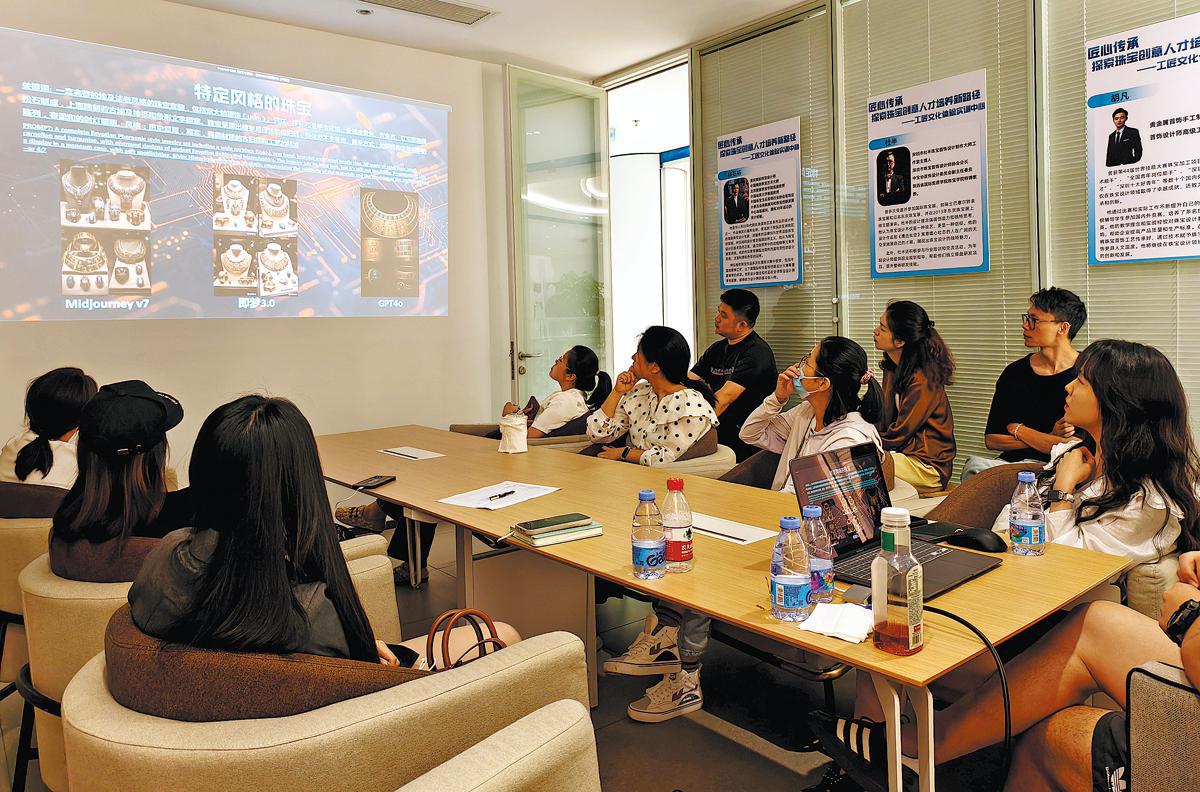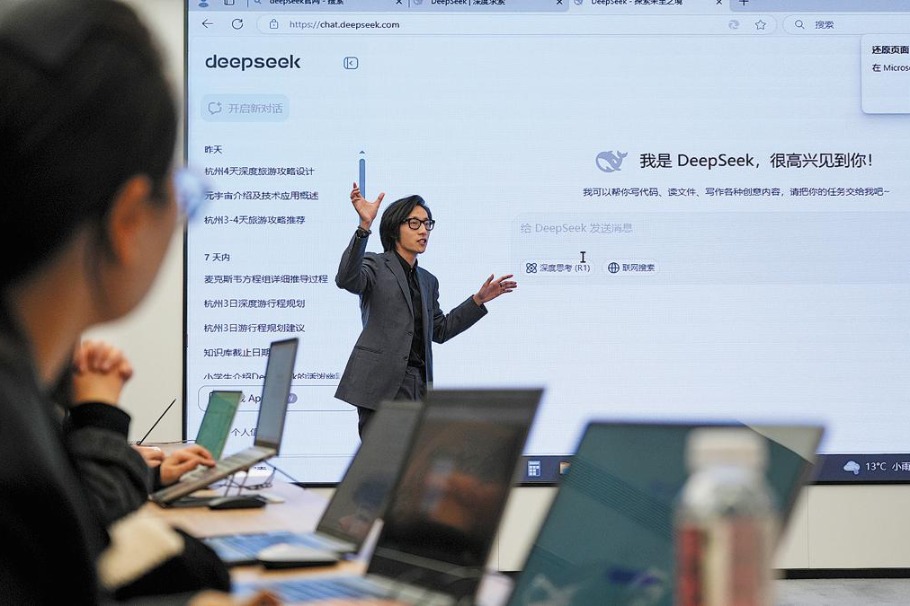Rush to enroll in AI classes as demand for talent grows
Transformation of careers, industries sees surge in training in Shenzhen


For a long time, siblings Fang Zhiyin and Fang Jingmin had been looking at ways to maintain their jewelry company's advantages in an increasingly competitive industry.
As the heirs of the family business, they were fully aware that traditional operating methods no longer met consumers' growing demand for personalized items and rapid turnaround of products.
As they explored ways of staying afloat, they came across an artificial intelligence-powered jewelry design course. Organized by Cuizhu neighborhood in Luohu district, Shenzhen, Guangdong province, the course aims to help businesses enhance their competitiveness and improve individuals' professional skills by equipping them with the ability to use AI technology.
Fang Zhiyin and Fang Jingmin believed adopting advanced technology could speed up their company's development.
"The changes brought by AI-assisted jewelry design have far exceeded our expectations," said Fang Jingmin, general manager of research and development at Shenzhen Baibaohui Gold Jewelry Co, who took the AI courses in March with his older sister.
The new knowledge has improved their business in multiple areas. Bespoke jewelry that once took several days to design can now be produced using AI in minutes, reducing the design time by 80 percent.
With the help of AI image recognition technology, the company can quickly analyze reference images provided by their clients and better understand their design preferences. This has led to a 35-percent increase in customer satisfaction.
Real-time 3D rendering enables customers to see a design immediately, cutting their decision-making in half and boosting the overall conversion rate from concept to product by 28 percent.
"In the age of AI, it is not the technology itself that causes businesses to fail, but the unwillingness of businesses to embrace it," said Fang Zhiyin, general manager of the company's commodities department.























